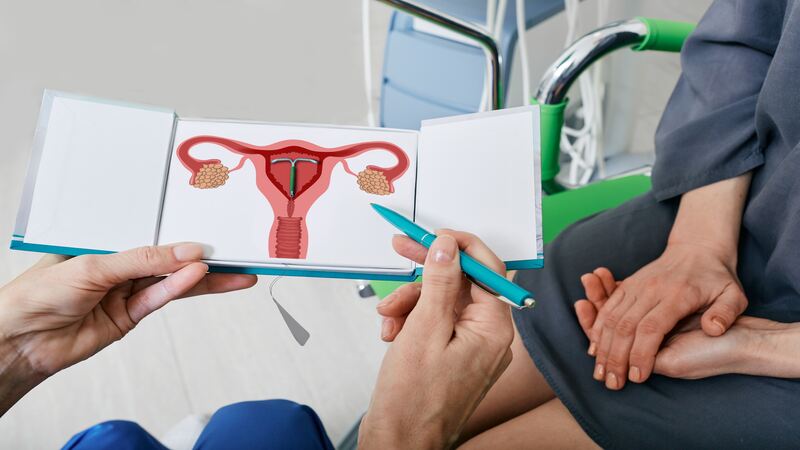
Birth control measures take away the risk of unwanted pregnancy. True. Contraception works by keeping the egg and sperm separated, or by ceasing the overall production of eggs. However, after a couple of years once you are ready to conceive and start a family, do these measures hinder your ability to get pregnant? Continue reading to understand the chances of pregnancy, or how fast you can get pregnant after removing Mirena, one of the widely depended birth control measures.
What Is An Intrauterine Device?
Intrauterine device (IUD) are devices, which are inserted into the uterus to prevent fertilization and thereby preventing the chances of pregnancy. IUDs usually,
- Stops sperm from moving towards the egg (or)
- Stops the embryo from getting implanted after fertilization
Either way, it acts over a long period of time providing reversible contraception for women.
What Is Mirena?
Mirena is a method of birth control for women. It is a flexible, plastic, T- shaped intrauterine device that is directly put in into the uterus with the hormone progesterone. This hormone-releasing system that is placed in the woman’s uterus prevents pregnancy. It works efficiently for up to a period of 5 years. Mirena not only effectively ceases the pregnancy, it also reduces considerably or even ceases the menstruation. Therefore, it is very useful for women who experience heavy periods.
Benefits Of Using Mirena
- It is 99% accurate in effectively ceasing the pregnancy
- It does not interfere with sexual intercourse
- It is reversible and hence it is not hard to get pregnant after it is removed
- It will not interfere with breastfeeding if you for opt this birth control method after delivery
- Will not result in gaining weight as in the case of some other contraceptive methods
- It is a hormonal IUD and hence the chances of ectopic pregnancy are considerably reduced
- Inserting Mirena is an easy procedure and so is removing it
- A plastic string which is attached at the end of Mirena will hang into the vagina through the cervix. You could feel this string. This will ensure that Mirena is properly positioned
Side Effects Of Using Mirena
- Unlike condoms, Mirena will not protect your against sexually transmitted diseases
- Sometimes after inserting Mirena the periods will stop altogether. Although some women consider this a benefit, for others who like to get their monthly cycle, this will be a point of worry
- Mirena is not suitable for women who are prone to infections or have had liver disease, pelvic infections, congenital heart disease or certain reproductive cancers

How To Get Mirena Removed?
It may seem like a simple process to remove the Mirena yourself, owing to the fact that you can really feel the string that is hanging towards vagina through the cervix. Never ever, attempt to do that. The risk of injury is very high if it is not done by a specialist. A speculum is inserted into the uterus and pulls the thread out. Even though it is usually inserted a week after the periods, Mirena can be removed at any time when you decide to start a family.
Complications Of Using Mirena
Any intrauterine device may get entrenched into the wall of the uterus or form a hole in the uterus. This possibility is there for Mirena too. This can bring about complications like scarring and infection of the uterus. It can also damage other organs that are close to the uterine wall. If the device gets embedded in the uterine wall or pierces it, a surgery will be needed to get the device out.
Pelvic inflammatory disease (PID) is another severe but rare complication of using Mirena. This happens because of wrongly placed Mirena. This can harm Fallopian tubes, lead to ectopic pregnancy, infertility and persistent pelvic pain.
Sepsis is a life-threatening infection that may happen during the days following the placement of Mirena. Severe pain or unexplained high fever not long after placing the Mirena are signs of this infection.
Getting Pregnant After Mirena Removal – How Long Will It Take ?
Women who did not have any complications from using Mirena should not have any issues conceiving and carrying out a healthy pregnancy
Once the Mirena has been removed, the fertility will come back to normal without much delay. May be pregnancy can even happen immediately before the next period. However, doctors recommend it is better for women to wait for one menstrual cycle before trying to conceive. This is to give the body to get back to its tempo and to ensure the hormones fall back to normal level.
Still, normally, young couples are found to conceive about four to six months after getting the Mirena removed. Within one year after the removal of Mirena, about 90% of the couples are able to conceive.
Chances Of Getting Pregnant With Mirena
No contraception can guarantee 100% success rate. Even though chances are rare, there is a remote possibility that you may get pregnant while on Mirena. If this happens, consult your doctor straight away. The doctor will take out Mirena. However, taking out the IUD device during pregnancy increases the risk of miscarriage. But then keeping it in is even riskier.
Once get pregnant with Mirena, the chances of ectopic pregnancy are very high. Ectopic pregnancies are unsafe for the mother as the fertilized egg is implanted in the Fallopian tube instead of the uterus. This obviously makes it impossible for the embryo to survive. Nevertheless, mother’s life will be in a jeopardy, as the risk of heavy internal bleeding is very high as the Fallopian tube can rupture.
Have you used Mirena ? What was your experience of getting pregnant after Mirena removal? Please share it in the comments section below.

